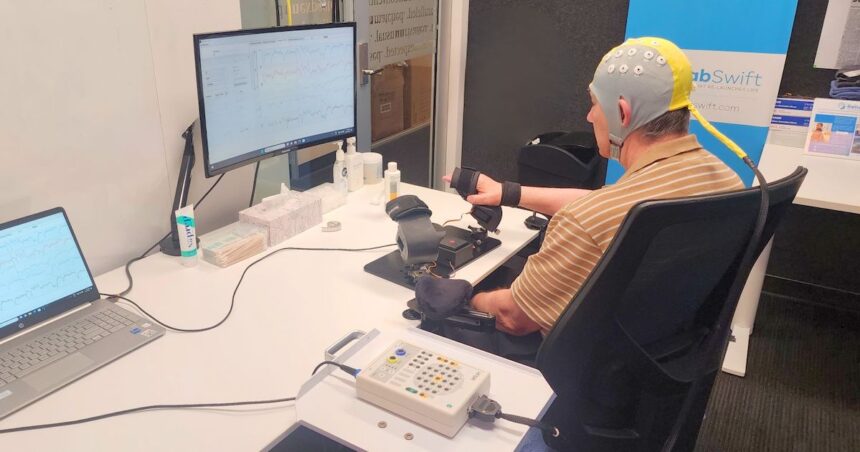A study in South Australia assessed the effectiveness of a brain-computer interface (BCI) system in helping stroke survivors regain hand movement. The study involved 12 chronic stroke survivors who underwent neurofeedback training sessions using the RehabSwift BCI system. The system captures brain activity and translates it into commands for bionic hands to move the fingers. The therapy demonstrated significant improvement in hand movement and reduction in post-stroke arm and hand impairment lasting up to six weeks. Researchers believe personalized BCI therapy can help rewire damaged neural pathways, improving motor functions for stroke survivors. The study aims to further investigate the long-term effects and viability of BCI-based therapy.
Source link
Enhancing post-stroke rehab with personalised computer system-based therapy
